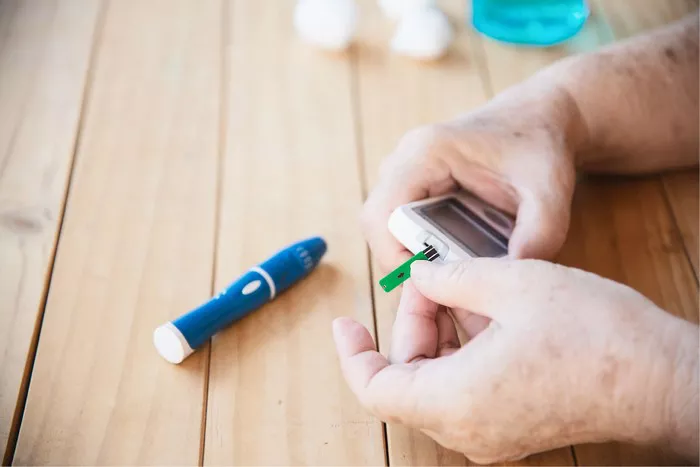In discussions surrounding metabolic health and disease, terms such as “blood sugar” and “diabetes” are often used interchangeably, yet they represent distinct concepts with unique implications for health and well-being. While both are closely related to glucose metabolism, understanding the differences between blood sugar and diabetes is essential for accurate communication, diagnosis, and management of metabolic conditions. In this comprehensive article, we delve into the fundamental distinctions between blood sugar and diabetes, their physiological underpinnings, clinical significance, and implications for health outcomes.
1. Blood Sugar:
Blood sugar, also known as blood glucose, refers to the concentration of glucose molecules present in the bloodstream at a given time. Glucose is a simple sugar that serves as the primary source of energy for cells throughout the body, particularly in the brain, muscles, and other vital organs. Glucose is derived from the digestion and breakdown of dietary carbohydrates, including sugars and starches, and is transported via the bloodstream to cells where it is utilized for energy production through cellular respiration.
2. Diabetes:
Diabetes is a chronic metabolic disorder characterized by persistent hyperglycemia (elevated blood sugar levels) due to defects in insulin secretion, insulin action, or both. Insulin, a hormone produced by the pancreas, plays a central role in glucose metabolism by facilitating the uptake of glucose from the bloodstream into cells for energy production and storage. In individuals with diabetes, abnormalities in insulin function lead to impaired glucose regulation and dysglycemia, resulting in elevated blood sugar levels and associated complications.
3. Key Differences:
While blood sugar and diabetes are closely related, there are key distinctions between the two:
- Physiological Concept: Blood sugar refers specifically to the concentration of glucose molecules in the bloodstream, whereas diabetes encompasses a complex metabolic disorder characterized by chronic hyperglycemia and abnormalities in glucose metabolism.
- Measurement: Blood sugar levels are typically measured in units of milligrams per deciliter (mg/dL) or millimoles per liter (mmol/L) using a glucose meter and fingerstick blood samples. Diabetes is diagnosed based on specific criteria, including fasting blood glucose levels, oral glucose tolerance tests, or hemoglobin A1C (glycated hemoglobin) levels.
- Clinical Diagnosis: Diabetes is diagnosed based on established diagnostic criteria set forth by professional medical organizations such as the American Diabetes Association (ADA) or the World Health Organization (WHO). These criteria include fasting blood glucose levels ≥126 mg/dL (7.0 mmol/L), oral glucose tolerance test (OGTT) values ≥200 mg/dL (11.1 mmol/L) two hours after a glucose load, or hemoglobin A1C levels ≥6.5%.
4. Physiology of Diabetes:
The pathophysiology of diabetes involves defects in insulin secretion, insulin action, or both, leading to dysregulation of glucose metabolism and persistent hyperglycemia. The two primary forms of diabetes are:
- Type 1 Diabetes: Type 1 diabetes is an autoimmune condition characterized by the destruction of insulin-producing beta cells in the pancreas, resulting in absolute insulin deficiency. Individuals with type 1 diabetes require lifelong insulin therapy to maintain blood sugar levels within target ranges and prevent complications.
- Type 2 Diabetes: Type 2 diabetes is a metabolic disorder characterized by insulin resistance, impaired insulin secretion, and relative insulin deficiency. Risk factors for type 2 diabetes include obesity, sedentary lifestyle, family history of diabetes, and certain genetic predispositions. Treatment strategies for type 2 diabetes may include lifestyle modifications, oral antidiabetic medications, injectable therapies, and insulin therapy as needed.
5. Clinical Significance and Health Implications:
Both blood sugar and diabetes have significant implications for health and well-being, particularly in relation to the risk of acute and chronic complications:
- Hyperglycemia: Persistent hyperglycemia in individuals with diabetes can lead to acute complications such as diabetic ketoacidosis (DKA) or hyperosmolar hyperglycemic state (HHS) and chronic complications such as cardiovascular disease, neuropathy, nephropathy, and retinopathy.
- Hypoglycemia: Excessive lowering of blood sugar levels, known as hypoglycemia, can occur in individuals with diabetes who use insulin or certain medications to lower blood sugar levels. Hypoglycemia can cause symptoms such as dizziness, confusion, sweating, and loss of consciousness and requires prompt treatment to prevent complications.
6. Management Strategies:
Effective management of diabetes involves comprehensive strategies aimed at achieving and maintaining optimal blood sugar control and preventing complications:
- Lifestyle Modifications: Lifestyle modifications, including dietary changes, regular physical activity, weight management, and stress reduction, play a crucial role in managing blood sugar levels and improving overall health outcomes in individuals with diabetes.
- Medication Therapy: Medication therapy may be prescribed to individuals with diabetes to help control blood sugar levels and prevent complications. Treatment regimens may include oral antidiabetic medications, injectable therapies (e.g., insulin, GLP-1 receptor agonists), and other adjunctive therapies as needed.
- Blood Glucose Monitoring: Regular monitoring of blood glucose levels using a glucose meter and adherence to self-monitoring protocols help individuals with diabetes track their glycemic control, identify patterns, and make informed decisions about treatment adjustments or interventions.
7. Conclusion:
In conclusion, while blood sugar and diabetes are closely related concepts, they represent distinct entities with unique implications for health and disease. Blood sugar refers specifically to the concentration of glucose molecules in the bloodstream, whereas diabetes encompasses a complex metabolic disorder characterized by chronic hyperglycemia and abnormalities in glucose metabolism. Understanding the differences between blood sugar and diabetes, their physiological underpinnings, clinical significance, and implications for health outcomes is essential for accurate diagnosis, management, and prevention of complications associated with dysglycemia. By adopting comprehensive strategies for diabetes management, including lifestyle modifications, medication therapy, and regular monitoring, individuals with diabetes can achieve optimal blood sugar control and improve their overall health and well-being.

























